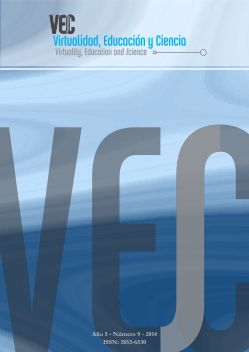Moodle as supporting tool in the teaching of English for Tourism within the Communicative Approach
DOI:
https://doi.org/10.60020/1853-6530.v5.n9.9551Keywords:
Moodle, english, tourism, communications.Abstract
The purpose of this article is to share the experience of using Moodle 2.5 in higher education, particularly, in the subjects English 1 and English 5 which are part of the curriculum of the careers “University Technician on Hotel Management”, “University Tourist Guide” and “University Technician on Tourism Management” at Facultad de Turismo y Urbanismo, Universidad Nacional de San Luis. This experience took place during the first semester of 2014. In this paper, the techno-pedagogical design used and the results of the experience are presented. Both subjects are taught by means of a communicative approach of the language. To teach the subjects, the Moodle platform is used as a supporting virtual classroom aiding the face-to-face teaching, thus, setting up a hybrid learning context. Advantages and restraints of the resources offered by Moodle are analysed taking into consideration the objectives pursued during the teaching of the mentioned subjects.Downloads
Download data is not yet available.
Downloads
Published
2014-11-30
How to Cite
González, M. C., & Moyetta, M. V. (2014). Moodle as supporting tool in the teaching of English for Tourism within the Communicative Approach. Virtuality, Education and Science, 5(9), pp. 70–77. https://doi.org/10.60020/1853-6530.v5.n9.9551
Issue
Section
Innovation and Experiences
License
The generation of derivative works is allowed as long as it is not done for commercial purposes. The original work may not be used for commercial purposes.


